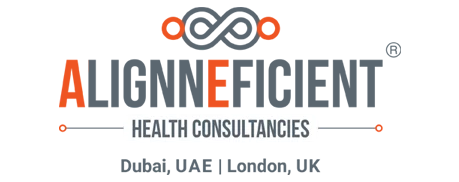Unfortunately, owing to the type of work that people engage in today and the increased work pressure that accompanies it, stress is almost a norm. Meetings, emails, the need for fast results, and stress can be overwhelming at times. But what if there was a way of passing through these challenges and at the same time the mind of the person was calm and focused? Explore mindfulness, a technique that needs to be employed in order to prevent stress at work from getting the best of you. Now, it is time to specifically focus on some of the actual mindfulness techniques to be used at work to avoid stress.
Understanding Mindfulness
Mindfulness can therefore be described as intentional focusing on the present moment while disengaging from the surrounding environment and one’s reactivity to it. It is a mental status where one turns attention to his/her breath and allows the thoughts and feelings to cross one’s mind without having to evaluate them. Under stress, your mind often becomes cloudy, perhaps interfering with your ability to think clearly and do your best work.
Practical Mindfulness Practices for the Workplace
Mindful Breathing
To reduce stress take some time and concentrate on your breathing. You should choose a calm environment, get comfortable, and then place your hands and your palms, on your lap or in your hands, and shut your eyes. While you are breathing, still count up to four while inhaling through the nose, pause for four counts and exhale through your mouth up to four counts. Go through this cycle for the next few minutes. In essence, this simple practice can go a long way in easing the mind, and subsequently ridding it of anxiety.
Mindful Breaks
Include short relaxing moments into the working day. Get up from your computer, go out for a while or at least rise from your chair. During such breaks, try to be aware of the environment around you, the feel of your body, and your breathing. It can be useful in clearing your mind periodically and freeing you up to come back to your tasks with fresh focus.
Mindful Listening
While it is so easy to engage in small talks with certain co-workers, one should try to practice purposeful listening. Do not start forming your reply in your mind while the other person is speaking, listen to him or her fully. This also eliminates one of the causes of stress, which is poor communication and at the same time enhances relationships within the workplace.
Gratitude Journaling
Upon finishing your work, for the next few days, spend a few moments jotting down the three things you are thankful for. Simple things can be a supportive colleague, a productive business meeting, a yummy meal and so on. Concentrating on the positive makes one change his or her attitude and evade stress.
Mindful Eating
Lunch breaks can also be turned into a form of practicing mindfulness. Skip the practice of eating from a plate placed on your desk while taking a working break. Taste, feel and smell your foods. This will help in digestion and will also be a much needed break from the stressful work environment.
Progressive Muscle Relaxation
In this practice, the individual contracts all the muscles in their body for a count of ten while then gradually releasing the contraction beginning from the lower part of their body to the upper part including the head. Another beneficial technique is progressive muscle relaxation that can ease muscle tension that usually arises with stress.
Mindful Reflection
At the end of the week, take a pause to be mindful and contemplate on things that happened. Reflect on experiences in the work setting considering what was done right, problems solved and how they were solved. Pondering about the events that occurred can give you knowledge and prepare you for next time with an explosive temper.
Bringing Mindfulness into the Workplace Culture
Awareness in the workplace could improve conditions for everyone at work since claiming more attention for workers may yield better results and healthier organizational conditions. Organizations can go a long way providing organized mindfulness resources including off work meetings and training sessions, mindfulness by space including a quiet room, and offering mindfulness guides including instructional TV series or programs online as well as literature. Consequently, organizations allow people to work effectively in conditions that strengthen the health of a subject due to the overall management of stress.
Conclusion
Stress is a common problem that takes a toll on the overall health of a person and Mindfulness is one such method which helps in reducing the stress level way up to the corporate world. Through applying these basic strategies into your everyday practice, you’ll be able to work efficiently in terms of your work environment requirements as well as mental perspective. Remember that with mindfulness, you are on a journey and even minor steps that you are making to find your calm at work can be very beneficial. Begin doing it today and feel how it influences your career and other aspects of life in a positive way.
